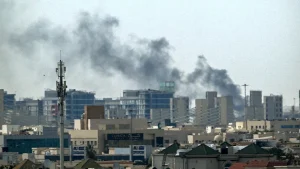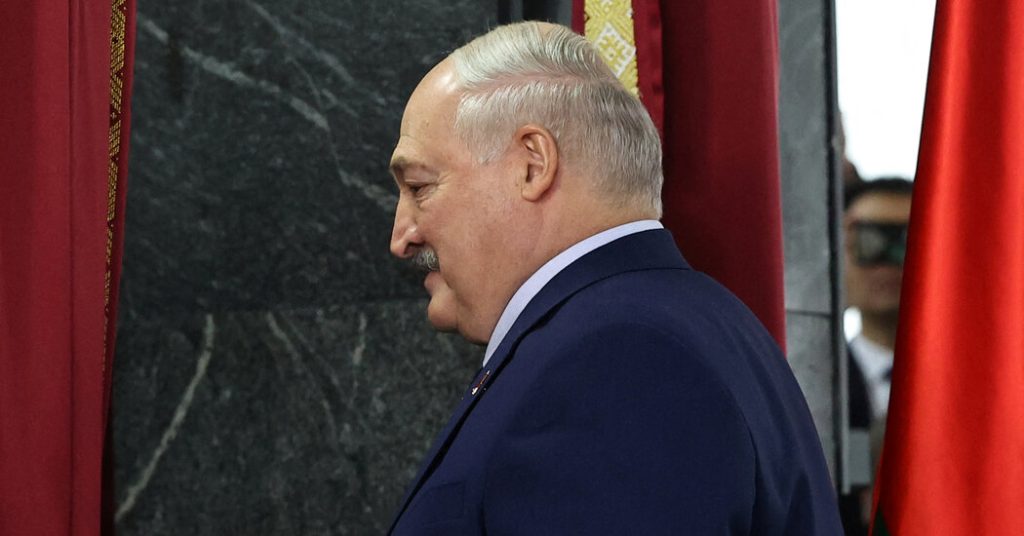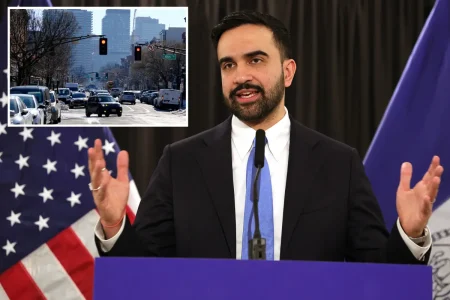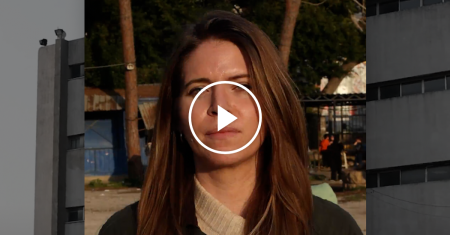The Tale of Lukashenko’s Seventh Victory: An Election or a Farce?
Picture this: a political leader clings to power like a ship anchor refusing to give way, navigating through uproar, dissent, and relentless criticism. This is Aleksandr G. Lukashenko, the president of Belarus—a man so entrenched in his position that he’s marking his seventh consecutive election victory. On Sunday, elections unfolded in Belarus. However, to many—including exiled opposition leader Svetlana Tikhanovskaya—calling it an "election" feels wildly inappropriate. “Don’t use the word election to describe this farce,” she said, referencing what she dismissed as a carefully orchestrated spectacle meant only to fortify Lukashenko’s autocratic chokehold on power.
But let’s take a closer look and unravel exactly what happened and why this "electoral victory" has become more of an infamous talking point than a celebratory milestone.
A Familiar Plot, Rewritten
Official results released Monday painted a predictable picture: Lukashenko won by an overwhelming margin of 86.82% of the vote—a figure even more inflated than his 81% victory in the 2020 elections. That earlier election sparked a massive wave of protests throughout Belarus, people taking to the streets in frustration over suspected election fraud. But this time? No protests, no public dissent—not because dissatisfaction has magically dissolved, but because fear casts a long shadow over Lukashenko’s Belarus. His expansive security apparatus ensures dissent is smothered before it finds its voice.
Unlike in 2020, this election lacked even a hint of competition. Svetlana Tikhanovskaya, who once dared to challenge Lukashenko before fleeing to Poland after the crackdown in 2020, was absent. In her place? A handful of nominal candidates with no intention of mounting a real challenge.
The charade was so blatant that one candidate, Sergei Syrankov of the Communist Party, openly admitted during a televised debate that everyone already knew the outcome. “Aleksandr Lukashenko is going to win,” he said, striking a tone that teetered somewhere between resignation and honesty. Unsurprisingly, Syrankov and the other contenders barely registered votes, each garnering less than 3% of the ballots cast.
Silencing Opposition, Seizing Control
By now, Lukashenko has perfected the art of political theater and control. The key actors in Belarus’s opposition movement have been strategically sidelined—some languishing in jail, others driven into exile. Meanwhile, a pro-Lukashenko media narrative blankets the public sphere, leaving little room for alternative perspectives.
This calculated “victory” holds significance, though, not just for its domestic implications but also on the international stage. For Lukashenko, it’s crucial to signal to President Vladimir Putin of Russia—his nation’s closest ally—that the Belarusian ship is steady after the turbulence of 2020. Putin’s support is a lifeline for Belarus, whether in the form of financial aid, trade partnerships, or military backing. Demonstrating stability at home gives Lukashenko leverage to keep his position and relationship with Moscow intact.
Sham Democracy Meets a Divided World
While Western voices, like European Union foreign policy chief Kaja Kallas, were quick to denounce the election as a “sham,” others surprisingly lauded it. Foreign observers, some of them linked to far-right political groups in Europe, hailed the election as democratic and free. These endorsements came from figures like Krastyo Vrachev, a Bulgarian nationalist, who claimed that life in Belarus seemed calm compared to Europe’s supposed chaos.
But calm comes at a cost. Lukashenko didn’t even bother with the pretense of rigorous campaigning. He skipped debates and rallies, saying he was too busy to attend. Still, he made some gestures to the public, like signing a decree last week for a 10% pension increase—the political equivalent of tossing crumbs to a hungry populace. Behind all the theatrics, though, dissatisfaction brews. According to a Chatham House survey, only 11% of Belarusians feel genuinely satisfied with the economy. Economic sanctions, triggered by Belarus’s support for Russia’s 2022 invasion of Ukraine, have crippled the country, with only 32% of surveyed citizens backing the invasion itself.
Lukashenko’s apparent popularity, according to the survey, seems rooted not in genuine admiration, but in his image as a leader keeping Belarus from plunging headfirst into the war. He’s painted himself as the man standing between Belarus and a new level of chaos, a characterization that resonates with those wary of further turmoil.
The Moscow Connection
Belarus’s tightrope walk with Russia became even more evident during the meeting between Lukashenko’s cautious leadership and Putin’s pressures. In early 2022, Russian troops used Belarus as a launchpad for their ill-fated assault on Kyiv. Since then, Putin has pressed for Belarusian troops to join the fight in Ukraine—a request Lukashenko has so far resisted. In his Sunday remarks after casting his vote, he predicted some form of resolution to the war this year, vaguely hinting at a new chapter for the region: “We will see light at the end of the tunnel,” he said.
Lukashenko has, however, shown loyalty to Moscow in ways that are less provocative domestically. He has delighted in antagonizing the West, particularly neighboring Poland, and used his allegiance to Putin as a shield against international isolation. Yet, in classic dictator fashion, Lukashenko has begun dangling acts of "humanity" as bait for improving relationships with Western capitals. Fifteen political prisoners were released recently in what many see as little more than a ploy to gain relief from crushing sanctions. Lukashenko, though, emphatically denies this. At a press conference, he declared, “I don’t give a damn about the West.” Instead, he framed these releases as gestures of "basic humanity."
Lukashenko vs. Democracy
The irony of Belarus’s political theater is impossible to ignore. Lukashenko, famously tainted with the descriptor “Europe’s last dictator,” a term coined back in 2005, seems to relish in his role as democracy’s nemesis. His adversarial relationship with the West and cozy rapport with Moscow set him apart on the global political stage. Yet, his lack of genuine domestic or international legitimacy forces him to continually reinforce his image through sham elections, inflated percentages of support, and tightly controlled narratives.
This fragile balancing act may last a little longer, but change feels unavoidable, be it through economic collapse, international intervention, or grassroots pressure. Whether Lukashenko will realize this before the cracks in his regime widen remains to be seen.
A Dictator’s Dilemma
There’s little suspense in Belarus when election days roll around—it’s a recurring, well-rehearsed play with the same predictable conclusion. But Lukashenko’s seventh "victory" still stands out, not because of the votes, but because of what it represents: a regime deeply entrenched yet undeniably fragile. A man relentless in maintaining his grip on power, yet trying to tiptoe the line between appeasing Moscow and staying palatable enough to negotiate with the West.
For now, Lukashenko’s opponents remain silenced or sidelined, and his dreams of casting himself as a stabilizing force linger on shaky ground. But history has taught us one thing about seemingly permanent autocracies: nothing lasts forever. Though Belarus appears still and calm today, there’s a storm of discontent quietly gathering strength, and Lukashenko may soon find himself battling forces far greater than he’s prepared to face. Would that be poetic justice or simply history repeating itself? Only time will tell.










